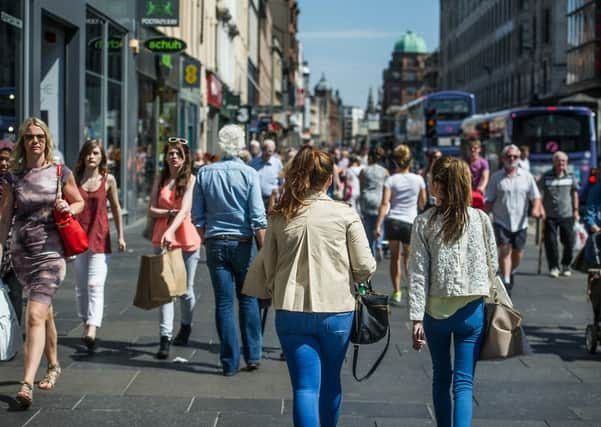Clothing sales faltered in run-up to Brexit vote


The latest British Retail Consortium-KPMG survey showed that total retail sales were up 0.2 per cent in June compared with a year ago, but like-for-like sales fell by 0.5 per cent.
The drop-off was triggered by weaker clothes sales as spending failed to match up to record growth for clothing and footwear seen in June last year.
Advertisement
Hide AdAdvertisement
Hide AdHowever, BRC chief executive Helen Dickinson said it was “too early” to say whether shoppers were spooked by uncertainty surrounding the EU referendum and the economic fall-out of the Brexit vote.
She said: “Retail sales grew in June, albeit with total growth slowing to 0.2 per cent. While sales did slow towards the end of the month, it is too early to define this as a trend.
“The month outturn was predominantly driven by a decline in sales in the fashion categories and isn’t a surprise given that June 2015 saw record growth in clothing and footwear.”
It comes after total retail spending lifted by 1.4 per cent in May compared with a year ago, while like-for-like sales rose by 0.5 per cent over the period after two flat months in April and March.
The latest update from the high street follows a report pointing to the sharpest fall in consumer confidence for more than 20 years since the Brexit vote, with a third of shoppers believing prices will increase rapidly in the next year.
Some 60 per cent of consumers expect the general economic situation to worsen in the next 12 months, up from 46 per cent in June, while just 20 per cent expect it to improve, down from 27 per cent last month, a one-off GfK Consumer Confidence Barometer survey taken after the referendum found.
The pound also fell below $1.28 for the first time since 1985 last week and dropped as low as €1.16 when a string of investment firms put their commercial property funds on lockdown.
But Dickinson said there was unlikely to be “any instant shocks” caused by collapse in the value of sterling, as it will take time to feed its way through to prices on the high street.
Advertisement
Hide AdAdvertisement
Hide AdShe added: “Despite the fall in the pound, the time it takes for any input price increases to translate into higher shop prices will depend on a combination of factors including further changes in the pound, commodity prices and the challenge for retailers to move pricing given the intensity of competition.”
